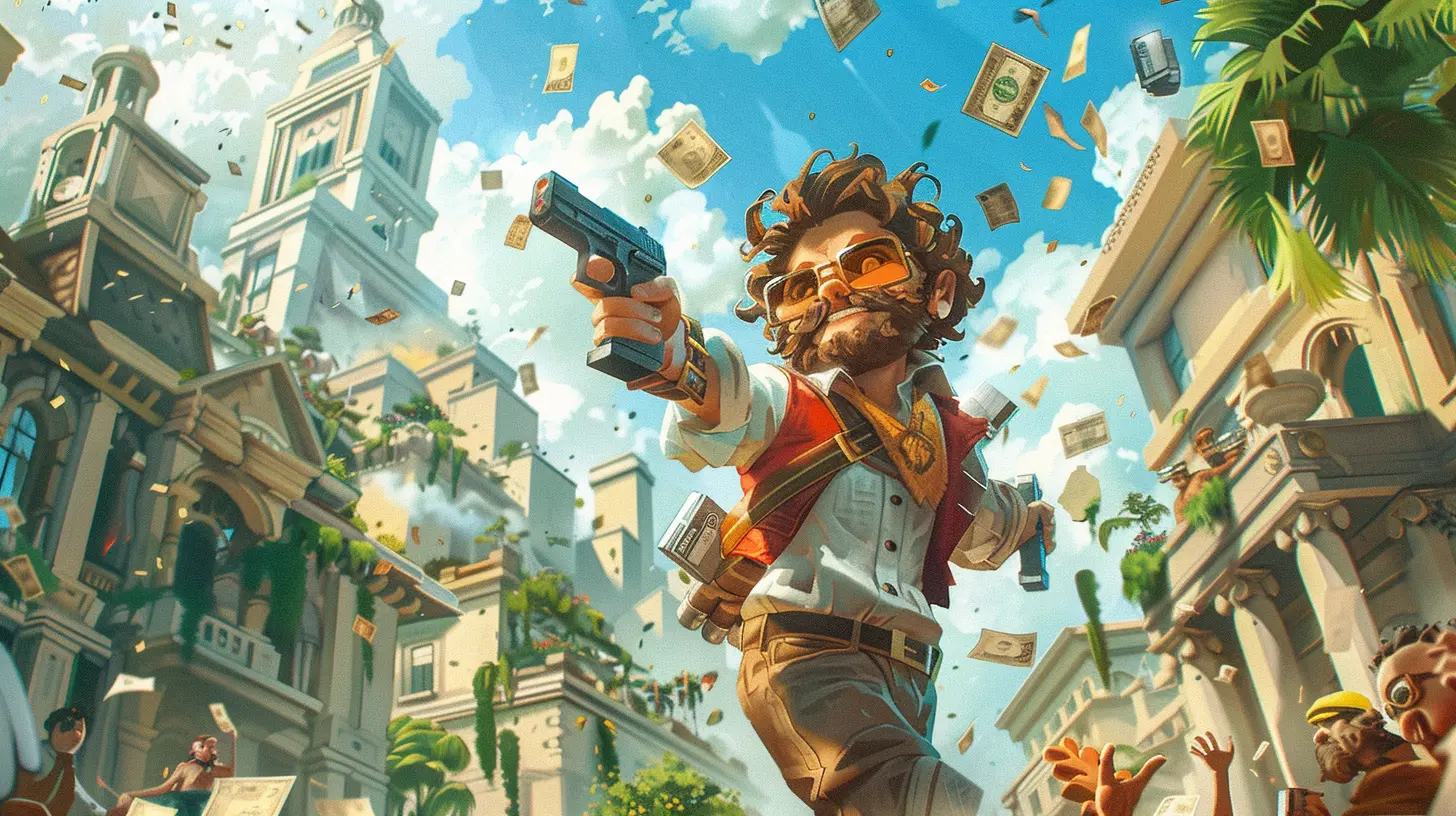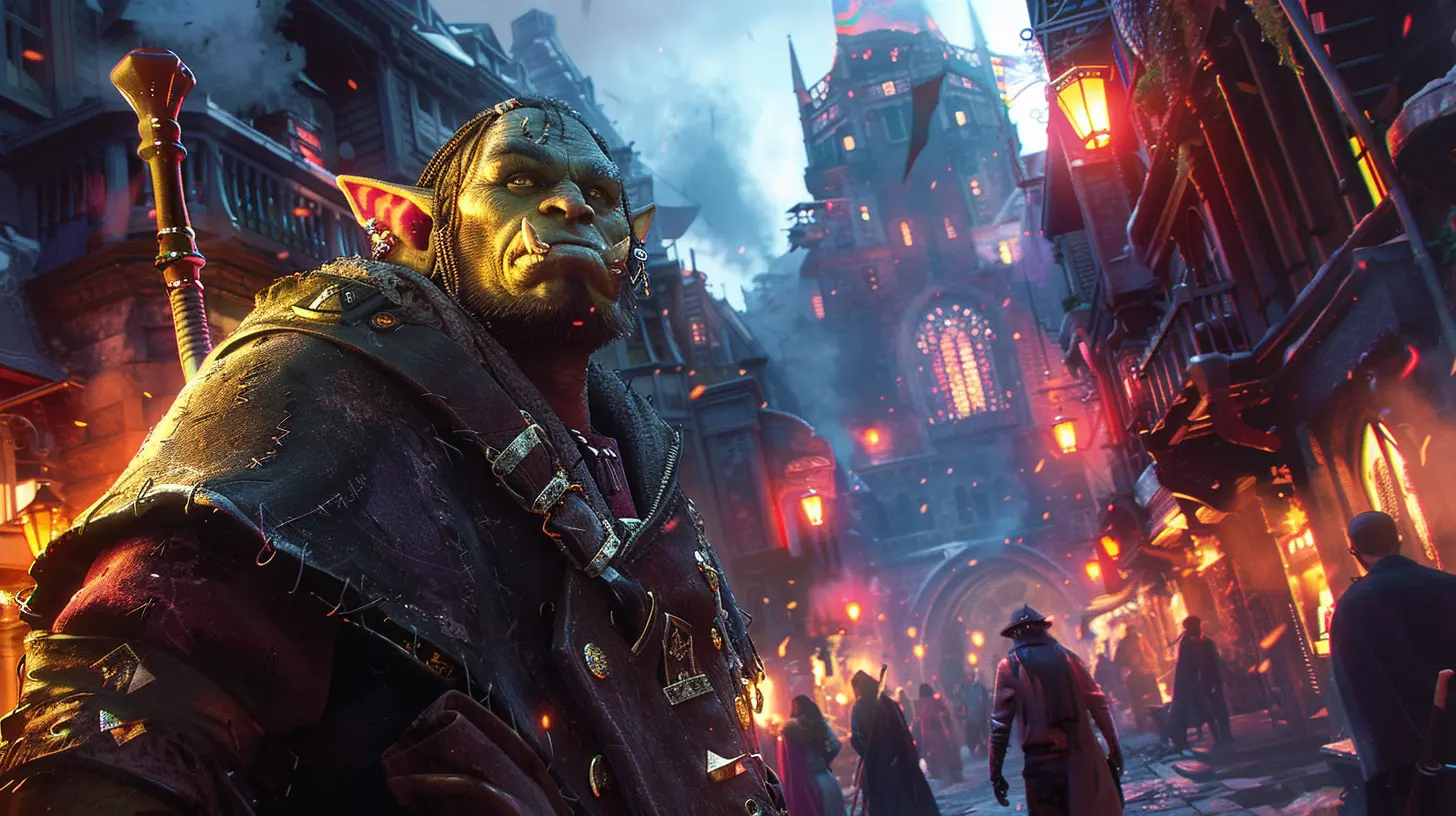Why Community Feedback is Essential to the Success of Crowdfunded Games
13 September 2025
Crowdfunded games are like passion projects on steroids. When developers pitch their dream projects to the masses, they’re not just looking for money; they’re building a community. But here’s the kicker: without community feedback, many of these dreams would stay just that—dreams. Why? Because the players who fund these games aren’t passive consumers; they’re active stakeholders. And guess what? Listening to them can be the difference between launching a blockbuster game or a total flop.
In this article, let’s dive deep into why community feedback is not just nice to have—it’s absolutely essential for crowdfunded games. Think of it as the secret sauce that holds everything together.
Crowdfunded Games: A Quick Refresher
First off, let’s back up for a second. A crowdfunded game is essentially a game that gets its financial backing from everyday people rather than big publishers. Platforms like Kickstarter, Indiegogo, and Patreon have paved the way for indie developers to fund their creative visions. Sounds amazing, right?Here’s the thing: when you cut out traditional publishers, you also lose that layer of industry oversight. The game’s success now squarely depends on the developers and the community they build around it. That’s where feedback comes into play. The backers funding your project? They’re not just handing you cash—they’re attaching their hopes, dreams, and expectations to your game. And ignoring their input? That’s a fast track to disaster.
Why Community Feedback Matters
1. It Builds Trust and Strengthens Relationships
Think about it: crowdfunding hinges on trust. Backers are essentially giving their money upfront for something that doesn’t even exist yet. That’s a huge leap of faith! When developers actively seek and respond to feedback, it shows backers that their voices matter. It’s like telling your community, "We’re in this together."On the flip side, ignoring feedback can feel like a betrayal. Imagine funding a game and realizing later that the developers didn’t care about your concerns. Not a great feeling, huh? Actively engaging with backers fosters transparency and builds a loyal fan base that’s more likely to stick around for future projects.
2. It Keeps the Game On Track
Let’s be honest: no amount of planning guarantees perfection. Even the best developers can get tunnel vision and miss glaring issues. That’s where the community comes in. Backers often have fresh perspectives and can highlight areas that need improvement before they spiral into bigger problems.For example, remember the game Mighty No. 9? It promised to be the spiritual successor to Mega Man. Fans were hyped, but many felt ignored during the development process. The result? A game that didn’t quite live up to expectations. On the other hand, games like Hollow Knight thrived because the developers listened to feedback, adjusted their course, and delivered something fans adored.
Community feedback acts like a GPS—redirecting developers when they start to veer off course.
3. It Adds a Layer of Quality Control
You know that one game-breaking bug that makes you want to throw your controller across the room? Yeah, no one wants that. Backers who are invested in a game’s success often double as unpaid QA testers. They’ll dig into gameplay mechanics, try out every weird combo, and spot issues long before the game even launches.This type of crowd-sourced quality control is invaluable, especially for indie developers who might not have huge budgets for professional testing. And the best part? These backers are doing it out of love for the project. The least developers can do is listen to what they have to say.
4. It Enhances Creativity
Here’s a brain twister: what if community feedback doesn’t just fix problems but makes the game better? Sometimes, players come up with ideas that developers wouldn’t have thought of in a million years. Maybe it’s a new character design, a feature that makes gameplay more engaging, or even just a tweak to a storyline that makes it more compelling.Developers and players are like peanut butter and jelly—they bring different flavors to the table, but when combined, it’s magic. By incorporating player ideas, developers can create a game that feels both personal and innovative.
5. It Drives Community Ownership
When players see their feedback implemented, they feel like they’re part of the creation process. And let’s be real: who doesn’t love being part of something bigger than themselves? This sense of ownership turns backers into lifelong fans who will advocate for your game like it’s their full-time job.Take Stardew Valley, for example. While it wasn’t crowdfunded, its developer Eric Barone consistently listened to the community post-launch, adding features they wanted (like multiplayer). The result? A game with a die-hard fanbase that’s still thriving years later. Crowdfunded games that embrace feedback can cultivate that same level of loyalty.
The Risks of Ignoring Feedback
Of course, this wouldn’t be a balanced discussion without touching on the flip side. Ignoring community feedback can spell doom for a crowdfunded game. Let’s face it—when people feel unheard, they get frustrated. Frustrated backers lead to negative reviews, social media backlash, and dwindling support for future projects.A notable example is the Ouya console. It was one of Kickstarter’s biggest successes, but the creators failed to adapt based on user feedback. The result? A product that didn’t deliver and a community that felt burned. The lesson? Ignoring your backers is a shortcut to losing them.
How Developers Can Effectively Use Feedback
So, how can developers make the most of community feedback without getting overwhelmed? Here are some tips:1. Create Open Channels of Communication
Whether it’s through Discord servers, Reddit threads, or regular Kickstarter updates, make it easy for backers to share their thoughts.
2. Be Transparent About Decisions
Not all feedback is actionable, and that’s okay. But if you’re not using certain suggestions, explain why. Transparency goes a long way in maintaining trust.
3. Involve the Community in Milestones
Host polls, share alpha builds, or let backers vote on certain aspects of the game. The more involved they feel, the more invested they’ll be in the project’s success.
4. Actively Acknowledge Contributions
Simple gestures, like crediting backers for their ideas or feedback, can make a world of difference. People love feeling like their input matters.
Wrapping It All Up
At the end of the day, crowdfunded games are a team effort. Sure, the developers are the ones coding, designing, and building the game, but the community provides the heart and soul. Their feedback isn’t just noise; it’s a treasure trove of insights that can shape the final product into something truly amazing.For developers, listening to the community isn’t just about fulfilling promises—it’s about creating a game that resonates with the people who believed in it from the start. After all, a crowdfunded game isn’t just a product; it’s a shared dream brought to life. And without community feedback, that dream risks remaining half-realized.
all images in this post were generated using AI tools
Category:
CrowdfundingAuthor:

Lana Johnson
Discussion
rate this article
1 comments
Jocelyn Oliver
Community feedback shapes vision and fosters trust, transforming ideas into beloved, successful gaming experiences.
September 22, 2025 at 2:29 AM

Lana Johnson
Absolutely! Community feedback is vital; it not only guides our vision but also builds trust, ensuring that the final product resonates with players and thrives in the market.


